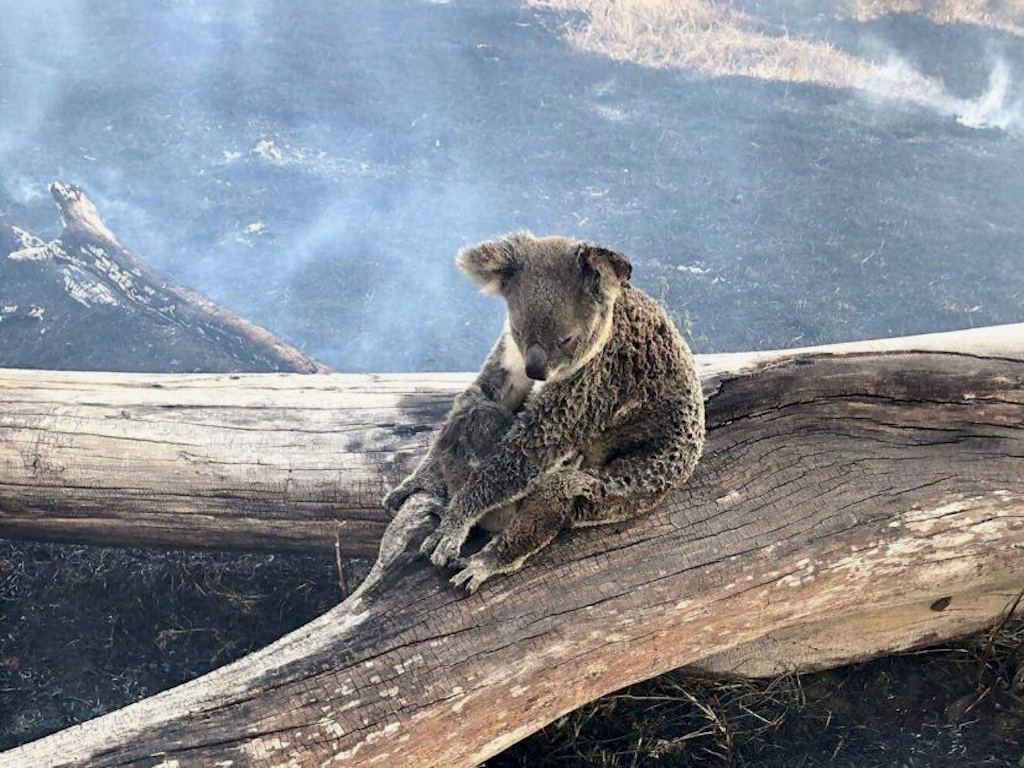3 Mins Read
News about koalas going “functionally extinct” have made headlines in the past few days in the midst of Australia’s unprecedented bushfire season, but experts have questioned these claims. However, scientists all agree that koalas are vulnerable and are in need of stringent governmental protection.
Australia is currently in the middle of an unprecedented bushfire season, with dozens of fires raging on in the eastern coast, destroying houses, infrastructure, forests and marshland along the way. As these record-breaking fires continue to eclipse the country, koala populations have dwindled due to habitat degradation. One environmental organisation made headlines by declaring the species as “functionally extinct” – but while this claim has been disputed, all experts do agree that the future of the species is currently under threat and that koalas need our protection to save them from potential demise.
This year, Australia has suffered an intense early bushfire season with fires burning through thousands of hectares across the region. New South Wales has been the area most hard hit by bushfires, with over 1.65 million hectares completely razed – an area larger than suburban Sydney. While no one fire can be blamed on our climate crisis alone, experts and scientists have agreed that this year’s unprecedented situation has been deeply exacerbated by the rise in global temperatures caused by increasing greenhouse gas emissions, which has led to extreme dryness and drought in eastern Australia.
In the areas where bushfires are prevalent, it has destroyed the natural habitat of key species, which has raised alarm bells amongst conservationists and environmental activists. With shocking predictive figures that over 80% of koalas’ natural habitat incinerated and 1,000 koala lives taken by the recent bushfires and prolonged drought, the Australian Koala Foundation (AKF) made the headline-catching claim that the species has become “functionally extinct”.
Functional extinction refers to when a population of a species becomes incredibly limited that they do not play any significant role within the ecosystem, and their population is no longer viable in the long-term, due to inability to reproduce and disease susceptibility. Deforestation and bushfires have destroyed the koala’s staple source of food: the eucalyptus tree. Eucalyptus plants can grow back after fires, but this will likely take months, which means that many koalas are now at risk of starvation.
However, other research groups and experts have disputed AKF’s estimate, arguing that total koala populations could still be higher. While the status of the koala species is being hotly debated, all experts do agree that they are under threat, and that conservation action must be ramped up if we are to see koalas live on long into the future.
Speaking to the National Geographic, professor of wildlife conservation at the University of Tasmania Chris Johnson said that there is no one event that will wipe out koalas, but their “populations will continue to decline because of lots of interacting reasons.”
Christine Adams-Hosking, a research fellow at the University of Queensland agrees: “It’s not looking good for koalas at all, even before the fires…Until that political will kicks in – and in Australia, it hasn’t – it’s not going to get any better for koalas.”
Thanks to the raised attention on the vulnerable koala population in Australia, more are pushing for vital regulations to be put in place to control and protect the species. Many are currently urging the government to enact the Koala Protection Act that will protect trees and habitats that are vital to koalas’ survival, and protect them from the threat of hunting.
Lead image courtesy of Queensland Police.




